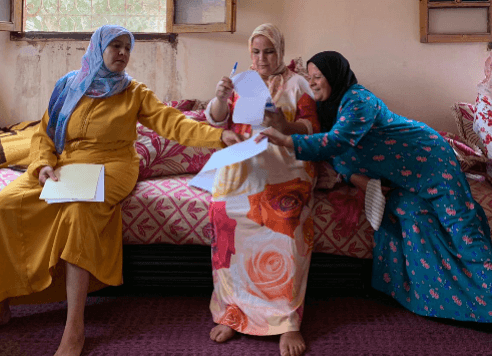Transitioning to a green economy compliant with ecological balances and capable of opening new opportunities for wealth creation and sustainable jobs, has become part of a major objective of the new sustainable development strategies being pursued by some countries in North Africa, especially Morocco.
Environmental constraints (water stress, land degradation, overly strong energy dependence, vulnerability to climate change, various types of pollution) and the limitation of economic growth and social development policies to create jobs and reduce social and spatial disparities, require a shift of economic modeling to that of a green and inclusive economy, able to create jobs, help reduce poverty and curtail territorial development imbalances.
In Morocco, some remote rural communities still live in areas that do not have access to electricity, clean drinking water, or the infrastructure to support their health and educational needs beyond the primary level. Further, investments in human capacities and development tend to favor men over women. For example, it is up to women to bring safe drinking water one kilometer if not more far from their houses and to collect fire wood. Additionally, illiteracy rate is very high among women in rural areas. One can, thus, begin to understand how difficult life is for rural Moroccan women.
Our area of study, in which a women’s weaving Cooperative will take place, called Ighil, a village in Haouze province. This area ranks among the poorest in all Morocco. Comprised mostly of rural farming communities, it has little access to infrastructure like electricity, water, and roads. The village in the foothills of the High Atlas still practices a subsistence economy of agriculture and pastoralism in steep, difficult areas resulting in their earning some of the lowest incomes nationally.
Illiteracy rates are 92 percent among Ighil women (83 percent among men). Most of girls drop out just after the primary school since the secondary and high schools are too far for them. Health dispensaries are still too distant for many families to reach in times of emergency, and at present medical consultations and health education campaigns rarely take place in the village.
Within the general framework of empowering women for development, this future project is an attempt to advance the socio-economic status and democratic participation of women and girls. The broad-based support among women and men for the proposed cooperative grew as a result of the participatory approach which builds social cohesion and local people’s skills to analyze their situation, reach consensus, make decisions, and take action to improve their circumstances. The cooperative project will create more equitable and sustainable development by increasing control over newly generated resources by local women whose social and economic marginalization has a negative impact on the family and the wider community.
The project will bring women together on a project which will be the first in the area, something which will pave the way to other projects of sustainable development and solidarity economy including literacy, training in new handcrafts and development of the local economy etc. During their community meetings and through their analysis of their own priority needs and opportunities – with our facilitation – the women and girls decided to begin with three main activities:
-
Value added activity of dyeing using natural plants, weaving rugs, blankets and wool clothes.
-
Improving their income buy selling knit-wears and woven items
-
Learning and trainings.
For these women, the cooperative will not be only a place for work, but a place for relations of solidarity among them. This is relevant and goes far beyond work opportunities but matters in terms of social inclusion and a sense of belonging.
It can be argued that exploring these women`s empowerment process can inspire further research and find specific measurements to assess the conditions under which cooperatives can empower women. Furthermore, the project will make the voices of the women heard, something, which, as previously argued, has often been neglected.
Jamal Ait Said
Graduate Student and HAF Volunteer




